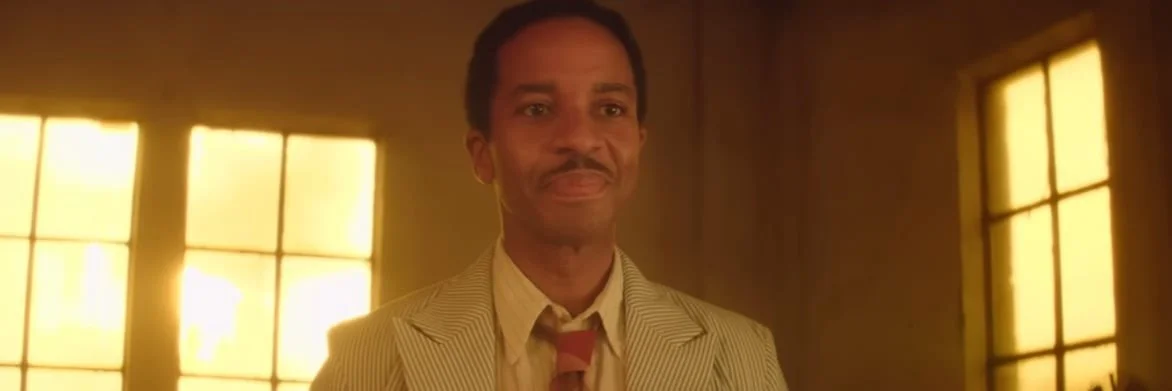"American Dharma" gives Steve Bannon a voice, so if you're already turned off by that prospect, then documentary filmmaker Errol Morris' latest movie is not for you. The rest of us can go into this beguiling film with an open mind and accept the challenge of an open dialogue with a man who many believe to be responsible for the emergence of the "Alt-Right" movement in this country.
Morris has been criticized for not being tough enough on Bannon in this doc, but I say phooey. Morris not only calls Bannon "racist," "evil," and "scary" to his face, but he is there to counterbalance and debate him throughout. Of course, deciding to boycott this doc plays right into the hands of the alt-right, who won the election because of the safe-space mentality inflicting America today.
I saw Errol Morris' "American Dharma" at the Toronto International Film Festival and, suffice to say, I was floored by it, disturbed if you will, by its talking head Steve Bannon who, in the film, gives us credible evidence of a looming, impending, hell inevitable, civilian uprising that is about to occur in the country. And yet, the film still hasn't found a distributor; nobody wants to touch it. Out of fear? Who knows. But there is legitimate concern that it is for political reasons, since after all, almost every single film that has been released by Morris in the last three decades has found a distributor. The 70-year-old filmmaker's reputation is that of a titan of the non-fiction genre. He single-handedly redefined what the documentary could do with his 1988 film "The Thin Blue Line," and has continued to produce mesmerizing, important work such as "Gates of Heaven," "The Fog of War," "Fast, Cheap and Out of Control," and "Mr. Death."
Back to 'Dharma,' Morris said in a recent interview [as per IndieWire] that he was “apprehensive" about tackling Bannon but "could never imagine that people would say I was promoting Stephen K. Bannon or endorsing his views. That’s a surprise." He went on to say "The ethics thing, to me, is not a terribly interesting argument. Sorry.”
Morris and Bannon's duel in 'Dharma' is tough and intense, but they accept each other's vastly opposite ideals. This rather irked many critics, such as Dave Sims for example, who wrote in The Atlantic, “It’s clear enough that the director doesn’t buy into Bannon’s overarching narrative of Trump as a revolutionary warrior giving power back to the disenfranchised workers of America, but the film is still too dominated by Bannon’s monologuing for the contrasts to really land." In Variety, Owen Gleiberman concurred. “It’s hard to escape the feeling that Errol Morris got played,” he wrote.
If “American Dharma” finds no distributor in the U.S, and I do believe that might very well happen, would it count as media censorship? It's a known fact that the vast majority of media companies promote liberal/globalist agendas and put their own prejudices over giving audiences an opportunity to think for themselves. However, we live in a time when it is becoming increasingly difficult for these prohibitive forces to hide their true intents. Once the film somehow finds its way online, the taboo-ness of it, and the fact that its reputation would be that of a film that the powers that be didn't want you to see, will make it be seen by millions of curiosity seekers.
Why can't Morris give us this legitimate work? It’s of course ridiculous and disgraceful. Errol Morris’ films are portraits of people who are interesting because they are outsiders, and they don't conform to the norms. Morris' films are investigative reports on these outside forces and the impact they have had on society. They are an opportunity for these people to make sense of themselves. Alas, we live in a world where audiences are being prohibited to think for themselves, therefore Morris’ inquisitive & unjudgemental ways of doing a portrait is now seen as a ‘thought crime’, but it’s actually the most valuable form of art.
The first thought I had as I was watching 'American Dharma' — and do understand I am no apologist — was how Steve Bannon came off as a rather intelligent man, whose words felt damn-near prophetic. He's hinting at a looming civil war coming in the United States, which, whether you're on the left or right side of politics, cannot and should not be shrugged off. We need to realize that all this division, this civil unrest, will not be gone tomorrow if Trump is impeached, or if Bannon is allowed to speak at Berkley; in fact, it might just intensify people's rage.
Bannon's values and goals may be different than ours, but how does he differ from others who Morris has interviewed in the past? Why was there no backlash when Donald Rumsfeld was interviewed or Robert McNamara? Both were secretaries of defense for administrations that went into majorly unjust wars, where tens of thousands of people died due to these these corruptly catastrophic blunders. Has Bannon done such damage? Of course not. In fact, he hasn't taken a single life, but he is being vilified more than Rumsfeld and McNamara because the noose has been tightened all over the media spectrum these last few years. Total control of thought has been sped up by the powers that be, and there no longer are two sides to an argument in 2018's mainstream media dialogue: you're either with us or you're part of an incalculable evil that cannot even be described, because you've been programmed to not understand it.






